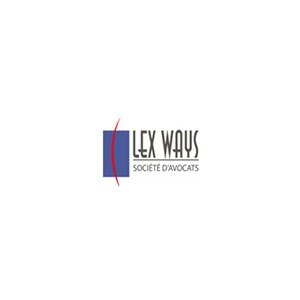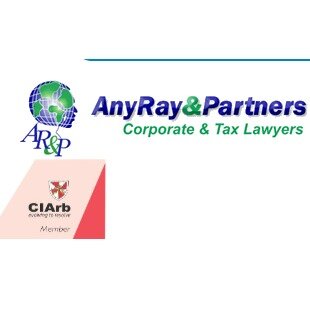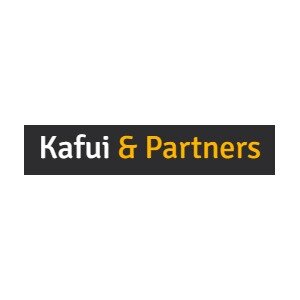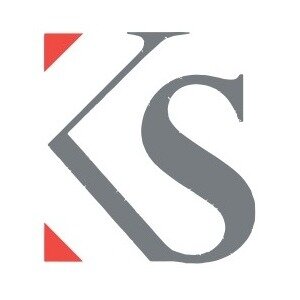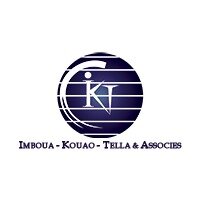Best Project Finance Lawyers in Ivory Coast
Share your needs with us, get contacted by law firms.
Free. Takes 2 min.
Or refine your search by selecting a city:
List of the best lawyers in Ivory Coast
About Project Finance Law in Ivory Coast
Project finance refers to the funding of infrastructure and industrial projects based on the projected cash flows of the project rather than the balance sheets of its sponsors. In Ivory Coast, project finance plays a vital role in sectors such as energy, transport, mining, telecommunications, and public infrastructure. The legal framework aims to facilitate large scale investments by both domestic and foreign stakeholders while managing risk and ensuring the protection of all parties involved.
Typically, project finance involves the creation of a new legal entity, known as a Special Purpose Vehicle (SPV), which holds the project assets, obtains the financing, and manages the project. The laws and regulations in Ivory Coast provide specific guidelines for the organization, operation, and dissolution of such entities, as well as the registration, collateralization, and enforceability of security interests.
Why You May Need a Lawyer
Project finance transactions are complex and involve multiple parties, including sponsors, lenders, government authorities, and contractors. Here are some common situations where legal advice is essential:
- Structuring the project to comply with Ivory Coast’s legal and regulatory framework
- Drafting and negotiating contracts such as concession agreements, engineering-procurement-construction (EPC) contracts, and power purchase agreements (PPAs)
- Securing licenses, permits, and authorizations from local authorities
- Arranging guarantees, collateral, and other forms of security for lenders
- Managing land acquisition and property rights
- Understanding and complying with environmental regulations
- Resolving disputes that may arise during the project lifecycle
- Advising on tax, customs, and foreign exchange regulations that affect project financing
A qualified project finance lawyer can help mitigate risks, ensure regulatory compliance, and protect your investment at every stage of the project.
Local Laws Overview
Project finance law in Ivory Coast is shaped by domestic laws, regional treaties, and international best practices. The key legislative and regulatory features include:
- OHADA Framework: Ivory Coast is a member of the Organization for the Harmonization of Business Law in Africa (OHADA), which establishes uniform commercial and corporate laws across 17 African countries. This includes rules for the incorporation and operation of companies, security interests, and insolvency.
- Public-Private Partnership (PPP) Law: The PPP Law provides a legal framework for public-private collaboration in developing infrastructure and services. It sets out requirements for tendering, contract negotiation, risk sharing, and dispute resolution.
- Investment Code: The Investment Code offers incentives and guarantees for both foreign and domestic investors, including tax advantages and protection against expropriation.
- Sector-Specific Regulations: Projects in energy, water, telecommunications, mining, and transportation are governed by sectoral laws and regulations, often requiring permits or approvals from relevant authorities.
- Environmental and Social Laws: Environmental impact assessments and compliance with environmental and labor standards are mandatory for most large projects.
- Land Tenure Laws: Clarifying and securing land rights is crucial for any infrastructure project. Projects must comply with the laws governing acquisition, leasing, and transfer of land.
Frequently Asked Questions
What sectors are most active in project finance in Ivory Coast?
Energy, transport, telecommunications, water and sanitation, oil and gas, as well as mining are the most active sectors for project finance in Ivory Coast.
Do foreign investors have any restrictions under Ivory Coast project finance law?
Foreign investors are generally welcome, and the Investment Code grants them the same rights as local investors. However, certain sectors may have specific restrictions or require government approvals.
How is an SPV created for project finance?
An SPV is typically incorporated as a limited liability company under the OHADA Uniform Act relating to commercial companies and economic interest groups. The SPV assumes the rights and obligations needed to carry out the project.
Are there incentives for investing in major projects?
Yes, the Investment Code offers various incentives, including customs and tax benefits, for qualifying investments in strategic sectors.
Can project finance agreements be governed by foreign law?
While it is possible for parties to choose a foreign governing law, certain aspects, such as real estate securities and public law contracts, are subject to mandatory local laws.
What kind of security can lenders take over project assets?
Lenders commonly take mortgages on real estate, pledges of movable assets, assignments of receivables, and security interests over project accounts according to the OHADA security law.
What is the process for obtaining permits and licenses?
The process depends on the sector and the specifics of the project. It often involves submitting applications to ministries or regulatory bodies with detailed documentation, and may require public consultations or environmental assessments.
What happens if a project is unable to repay its loans?
OHADA insolvency rules apply, allowing creditors certain rights to enforce security interests or initiate insolvency proceedings. Lenders often conduct thorough due diligence on the viability of the project prior to financing.
How are disputes usually resolved in project finance?
Disputes may be resolved through negotiation, mediation, local courts, or arbitration. Many project finance agreements prefer international arbitration for neutrality and enforceability.
Are there any currency or exchange control regulations to consider?
Ivory Coast is part of the West African Economic and Monetary Union, using the CFA franc as its currency. While the system allows fairly free currency movement, certain cross-border payments may require reporting or approval from the BCEAO, the regional central bank.
Additional Resources
Here are some organizations and authorities that provide information or oversee aspects of project finance in Ivory Coast:
- Ministry of Economy and Finance (Ministère de l’Economie et des Finances) - policy and regulation of large projects and investments
- Ministry of Petroleum, Energy, and Renewable Energy (Ministère du Pétrole, de l’Energie et des Energies Renouvelables) - for energy related projects
- Investment Promotion Center in Côte d’Ivoire (CEPICI) - information and support for investors and project sponsors
- OHADA National Commission - issues relating to commercial and corporate law
- Autorité Nationale de Régulation des Marchés Publics (ANRMP) - regulation of public procurement
- Environmental Assessment Agency - environmental permit and compliance processes
- Local chambers of commerce - business support and industry information
Next Steps
If you are considering a project finance transaction in Ivory Coast, it is important to:
- Engage a lawyer with strong experience in project finance and knowledge of the applicable OHADA and Ivorian laws
- Define the project structure and identify potential regulatory hurdles as early as possible
- Collect all necessary documentation for permits, approvals, and compliance checks
- Consult with relevant governmental authorities or regulatory agencies to clarify requirements
- Negotiate clear and comprehensive contracts with all project participants
- Identify security interests and guarantee arrangements to secure financing
- Ensure continued compliance throughout the lifecycle of the project, from development to operation and eventual closure
Early legal involvement can prevent misunderstandings, reduce costs, and help your project reach a successful outcome. Consider reaching out to a reputable firm or legal advisor specializing in project finance in Ivory Coast to discuss your needs and outline a strategy tailored to your project.
Lawzana helps you find the best lawyers and law firms in Ivory Coast through a curated and pre-screened list of qualified legal professionals. Our platform offers rankings and detailed profiles of attorneys and law firms, allowing you to compare based on practice areas, including Project Finance, experience, and client feedback.
Each profile includes a description of the firm's areas of practice, client reviews, team members and partners, year of establishment, spoken languages, office locations, contact information, social media presence, and any published articles or resources. Most firms on our platform speak English and are experienced in both local and international legal matters.
Get a quote from top-rated law firms in Ivory Coast — quickly, securely, and without unnecessary hassle.
Disclaimer:
The information provided on this page is for general informational purposes only and does not constitute legal advice. While we strive to ensure the accuracy and relevance of the content, legal information may change over time, and interpretations of the law can vary. You should always consult with a qualified legal professional for advice specific to your situation.
We disclaim all liability for actions taken or not taken based on the content of this page. If you believe any information is incorrect or outdated, please contact us, and we will review and update it where appropriate.
Browse project finance law firms by city in Ivory Coast
Refine your search by selecting a city.



